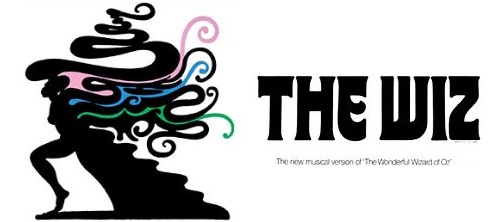Pas de biographie disponible.
Compositeur Musique additionelle Librettiste Parolier Metteur en scène Chorégraphe Producteur création Producteur version

Musical
Musique: Charlie Smalls • Paroles: Charlie Smalls • Livret: L. Frank Baum • William Brown • Production originale: 7 versions mentionnées
Dispo: Résumé Synopsis Génèse Liste chansons
Genèse: Tryouts and Broadway The idea for the musical originated with producer Ken Harper. He replaced the original director with Geoffrey Holder in Detroit during out-of-town tryouts. The original Baltimore cast included Renee Harris as Dorothy, Charles Valentino as the Scarecrow, Ben Harney as the Tin Man, Ken Prymus as the Cowardly Lion, and Butterfly McQueen as the Queen of the Field Mice. Only Harney would remain in the Broadway cast, but in a much smaller role. The musical opened on January 5, 1975 at the Majestic Theatre, with Geoffrey Holder as director and the following cast: Stephanie Mills as Dorothy, Hinton Battle as the Scarecrow, Tiger Haynes as the Tin Man, Ted Ross as the Lion, Dee Dee Bridgewater as Glinda the Good Witch of the South, André DeShields as the Wizard, Mabel King as Evillene the Wicked Witch of the West, Clarice Taylor as Addaperle the Good Witch of the North, Tasha Thomas as Aunt Em, Ralph Wilcox as Uncle Henry. Producer Ken Harper considered closing the show after its Broadway opening night. One source attributes its return to a publicity campaign and favorable audience reaction; William F. Brown, who write the book, gave a more specific explanation in 1993: "20th Century-Fox, the show's major investor, put in another $100,000 to keep it going and everyone agreed to royalty cuts until the productions cost—about $1.1 million—was recouped....By the eighth week, we were selling out." The Broadway production moved to The Broadway Theatre on May 25, 1977, and closed on January 28, 1979, after four years and 1,672 performances. A popular song from the production was "Ease on Down the Road", sung by the characters as they dance down the yellow brick road. Along with other musicals including Purlie (1971) and Raisin (1974), The Wiz was a breakthrough for Broadway, a large-scale big-budget musical featuring an all-black cast. It laid the foundation for later African-American hits such as Bubbling Brown Sugar, Dreamgirls and Duke Ellington's Sophisticated Ladies. National tour and later revival The musical toured the US in 1976 and during the tour, Kenneth Kamal Scott replaced Andre DeShields as the Wiz, Stephanie Mills was replaced by Renee Harris, who was herself replaced in 1978 by Deborah Malone and subsequently Dorothy was portrayed by Ren Woods for the Los Angeles run at the Ahmanson Theater, where the 19-year-old made a big impression on Hollywood, casting her in the Milos Forman film Hair. Critics at the time compared her most favorably to Ms. Mills, who created the role on Broadway. A revival ran on Broadway at the Lunt-Fontanne Theatre from May 24, 1984, through June 3, 1984, closing after 13 performances and 7 previews. Directed by Geoffrey Holder, the cast featured Stephanie Mills as Dorothy. It then ran in London at the Lyric Hammersmith from December 11, 1984, through February 2, 1985. A planned 2004 Broadway revival was not produced. From 1996-97 there was another US national tour with Tasha Scott as Dorothy, Grace Jones (Evillene), Peabo Bryson (The Wiz), and CeCe Peniston as Glinda. The cast also featured Tony Terry as the Tin Man. Romelda Benjamin also played Aunt Em.
Résumé: Dorothy is blown by a tornado into munchkinland where she meets the Scarecrow, the Tin-man, and the Cowardly Lion. They all go off to see the Wizard of Oz, who turns out to be a phony, but she starts believing and they all live happily ever after.
Création: 15/1/1975 - Majestic Theatre (Broadway) - représ.

Musical
Musique: Charles Strouse • Paroles: Lee Adams • Livret: William Brown • Production originale: 1 version mentionnée
Dispo: Résumé Génèse Liste chansons
Genèse: The creators hoped that the backstage story about the making of a musical would cash in on the success of A Chorus Line as well as the popularity of the black-themed musical, including Brown's own The Wiz, which was still running at the time. But Brown's much-criticized book is a clichéd spoof of show business lawyers, idealistic young playwrights, glitzy Las Vegas performers, blue-haired matinée ladies, and the black-themed musical itself. The Wiz proved to be Brown's only success. Following a dismal October–November tryout with Helen Gallagher and Julius LaRosa at the theatre in the Riverside Church in Morningside Heights, the producers fired most of the cast and creative personnel, including director/choreographer George Faison. Gower Champion was called in to rescue the Broadway-bound production with only a month to go, but he feared that the show's defects were too serious to remedy and insisted on receiving a "Production supervised by" credit only. After 14 previews, the Broadway production opened and closed at the Lunt-Fontanne Theatre on December 21, 1978. It lost $1 million.[3] The cast included Patti Karr (replacing Gallagher), Alan Weeks, Larry Marshall, Warren Berlinger (replacing LaRosa), Loretta Devine, Jackée Harry, and Tiger Haynes. Julius Novick of The Village Voice called it "the best Broadway musical since Platinum," a disaster that had opened the month before. Critic and theatre historian Ken Mandelbaum has described the show as "a genuine turkey... hopeless... [a] well-meaning but fatally underpowered evening. The Charles Strouse-Lee Adams score had its moments...." A cast album was recorded before an audience during a live performance in December 1978.
Résumé: Backstage story about a white producer's misguided effort to create a musical based on a play written by a black author.
Création: 21/12/1978 - Lunt-Fontanne Theatre (Broadway) - 1 représ.

.png)
.png)




